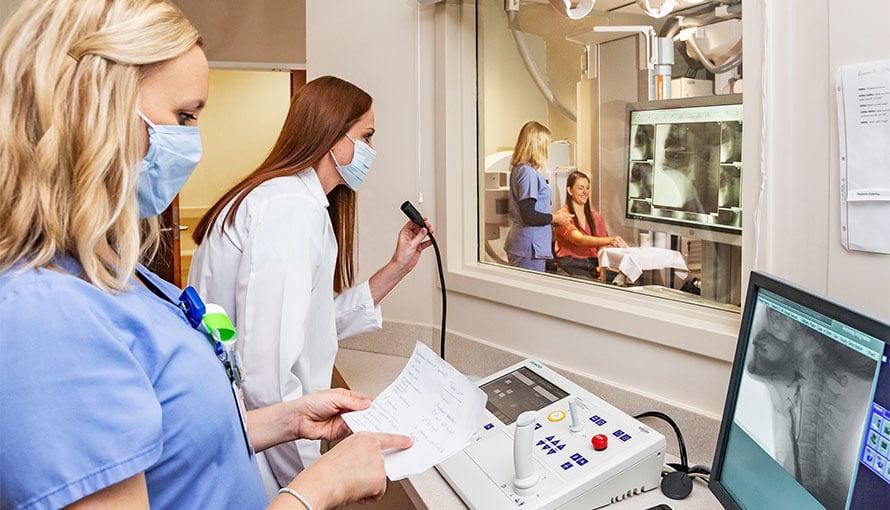Just How a Speech Pathologist Can Aid Improve Interaction Abilities
Efficient communication is a keystone of personal and professional success, yet several individuals deal with challenges that hinder their capability to express themselves clearly. A speech pathologist is equipped to address these barriers via targeted analysis and intervention strategies tailored to each individual's demands.
Recognizing Communication Problems
Recognizing interaction problems is necessary for acknowledging how they affect people' capability to express themselves and engage with others. Interaction disorders incorporate a variety of problems that affect speech, language, and social communication, typically impeding efficient interaction. These problems can develop from various aspects, including neurological problems, developmental hold-ups, physical disabilities, or psychological concerns.
Speech conditions may show up as problems in articulation, fluency, or voice manufacturing, impacting how words are pronounced or talked. Language problems, on the various other hand, entail challenges in understanding or using language, which can hamper both non-verbal and spoken communication. Social interaction conditions are identified by problems in the practical aspects of interaction, such as taking turns in conversation or understanding social signs.
The repercussions of communication conditions are profound, affecting not only the individual's capability to share thoughts and feelings yet also their social partnerships, academic opportunities, and total lifestyle. Awareness of these disorders can foster empathy and support, urging efficient techniques for communication and involvement. Comprehending the complexities of interaction problems is an essential step towards promoting inclusivity and resolving the requirements of those influenced.
Role of a Speech Pathologist
Speech pathologists often play an essential duty in detecting and treating communication conditions, utilizing a variety of evidence-based methods customized to each person's needs. These experts collaborate with people across the life expectancy, from children with speech delays to adults recouping from strokes or traumatic brain injuries. Their expertise includes a selection of interaction concerns, consisting of expression, voice, fluency, and language problems.
In restorative setups, speech pathologists make use of organized interventions created to improve communication skills. They might implement approaches such as speech exercises, language video games, and social interaction training to promote enhancements in meaningful and responsive language capacities. Speech Pathologist. In addition, they educate customers and their family members about efficient communication techniques and adaptive techniques to navigate day-to-day interactions
Beyond direct therapy, speech pathologists collaborate with various other healthcare instructors, experts, and caregivers to guarantee an extensive technique to therapy. They advocate for clients by giving resources and assistance, making it possible for individuals to accomplish their interaction objectives and improve their total lifestyle. As experts in the field, speech pathologists are essential in promoting effective communication, advertising self-reliance, and improving social involvement for those with communication difficulties.
Assessment and Medical Diagnosis Process
The analysis and medical diagnosis process conducted by speech pathologists commonly entails a detailed evaluation to determine communication problems precisely. This process begins with a thorough medical history, where the clinician gathers essential info about the person's clinical, academic, and developing history. Recognizing the context of the individual's interaction difficulties is our website necessary for a precise medical diagnosis.
Following the situation background, speech pathologists utilize standard tests and informal assessments to review various elements of interaction, including speech noise manufacturing, language understanding, meaningful language, and social communication skills. These analyses are customized to the individual's age and details problems, offering useful information for analysis.
Monitoring is likewise an important part of the assessment process, as it permits the clinician to see firsthand how the individual interacts in all-natural settings. Furthermore, interviews with member of the family and educators can provide insight into the individual's interaction obstacles throughout various atmospheres.
Once the evaluation is total, the speech pathologist manufactures the findings to determine a diagnosis and advise suitable treatments. This complete assessment process ensures that individuals obtain targeted support customized to their special interaction demands, laying the foundation for effective restorative methods.
Healing Techniques and Strategies
Countless restorative techniques and approaches are employed by speech pathologists to deal with a variety of communication conditions properly. One widely utilized method is expression therapy, which focuses on correcting speech seems through repetition and visual cues. This technique is especially useful for individuals with speech sound conditions.
Another efficient method is language intervention, which improves both meaningful and receptive language skills. This might involve interactive activities that advertise vocabulary advancement, syntax understanding, and conversational skills. Furthermore, speech pathologists usually make use Find Out More of social abilities training to boost practical language abilities, enabling individuals to navigate social interactions extra successfully.
Fluency shaping and stuttering modification methods are specifically designed to aid those experiencing fluency conditions. These approaches assist clients establish smoother speech patterns and manage the physical and emotional parts of stuttering.
In addition, different and augmentative communication (AAC) systems are employed for individuals with severe interaction problems. These systems, which can consist of motions, icons, or electronic devices, offer crucial assistance for reliable interaction.
Advantages of Speech Treatment

In addition, speech treatment can assist in creating essential listening and understanding skills, cultivating much better interaction in discussions. Individuals with cognitive-communication conditions can additionally benefit, as therapy concentrates on reinforcing memory and analytic capacities, crucial for efficient communication.
An additional important aspect is the emotional support provided during therapy sessions. Speech pathologists produce a risk-free setting, encouraging people to get over stress and anxiety and aggravation pertaining to their interaction problems. This support can lead to boosted self-esteem and total psychological wellness.
Moreover, early treatment through speech treatment can protect against further issues, ensuring that people reach their full communicative capacity. On the whole, the benefits of speech treatment expand past mere speech enhancement, positively affecting different dimensions of life for those impacted by interaction difficulties.
Conclusion
In recap, speech pathologists play a crucial function in addressing interaction conditions via assessment, diagnosis, and tailored healing interventions. By employing evidence-based strategies, these specialists enhance people' speech and language abilities, fostering improved clarity, fluency, and social communication skills. The benefits of early intervention emphasize the significance of seeking aid from speech pathologists, as their expertise can considerably boost communicative possibility, ultimately resulting in higher success in both personal and professional spheres.

Speech pathologists frequently play an essential duty in diagnosing and treating interaction problems, employing an array of evidence-based methods tailored to each person's needs. As experts in the field, speech pathologists are crucial in promoting reliable interaction, promoting independence, and boosting social engagement for those with communication obstacles.

Comments on “Why Early Intervention with a Speech Pathologist is Important for Children”